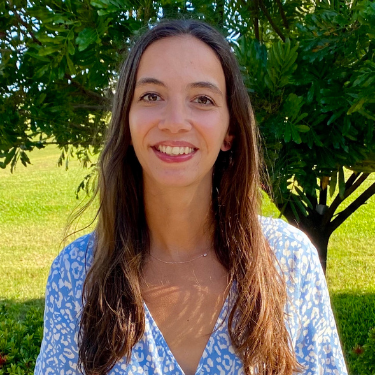Influenced by her mother’s work as a nurse in New York, Alison Davis discovered her passion for healthcare at a young age. Alison’s interest in the field grew further when her father was diagnosed with prostate cancer and she witnessed the incredible care he received. She hopes to improve healthcare technology and systems to optimize patient care as a 2021 graduate of the MS in Healthcare Policy and Research program.
Alison describes her experience in the health informatics track of the MS program as challenging yet very positive and rewarding. One of the main program highlights is the capstone project, which allows students to gain real-world experience by working with different stakeholders in the healthcare sector. Collaborating with a team of three students from the health policy and economics track and the chief of cardiology at NewYork-Presbyterian Queens Hospital, Alison is evaluating how remote monitoring and appropriate follow-up care for patients with a cardiac electronic implantable device (CIED) impacts health outcomes and utilization.
So far, the team has extracted claims data from Weill Cornell Medicine’s electronic health records to use for data analysis. Along with other factors, the research group is interested in assessing any potential disparities between patients who receive guideline directed remote monitoring versus patients who do not, based on gender, race, age, and co-morbidities. Alison has been pleased with the applicability of the course material and the chance to grow her professional network throughout the capstone experience.
“This capstone project gave me the opportunity to apply my classwork skills to a real-life project,” Alison said. “We are using STATA to analyze this data, which I learned in my biostatistics class. It is nice to have the experience to work with students from other tracks.”
While Alison has enjoyed many courses, one of her favorites has been “Research Methods.” She did not previously have much knowledge of the research field, so learning about different models and methods caught her interest. “This class really opened my eyes to different studies and how they can be performed in the health informatics field,” Alison said. “It was very helpful because in most of my classes, I read a lot of research papers for different assignments. This class gave me more knowledge to understand these papers in greater depth.”
Being able to build relationships with faculty who are widely recognized industry experts has also been a benefit of the MS program. Alison describes the faculty members as being approachable and always available to discuss a variety of topics, and she is grateful for their encouragement to join professional groups and societies.
“My health information standards and interoperability professor, Dr. Jyotishman Pathak, had us join a workgroup and attend different meetings and conferences for Health Level Seven (HL7), which provides international standards and guidance for transferring and sharing data between healthcare providers. I joined the HL7 mobile health workgroup and ended up making a couple of connections with other professionals in the health informatics field,” Alison said. “We were also encouraged to join the American Medical Informatics Association (AMIA) society, where I can gain more knowledge in the health informatics industry.”
Alison has worked as an investigative associate at Healthcare Risk Advisors since shortly after graduating cum laude with her BS in health information management from the University of Pittsburgh. With another semester until graduate school commencement, Alison plans to apply for full-time jobs as a healthcare consultant, an application analyst, or a clinical business analyst to help improve electronic health records in a hospital setting. “I believe that learning how to analyze data and apply it to a certain situation is imperative in healthcare and will only continue to be more important with the rise of technology,” Alison said. “I look forward to learning more while finishing this MS program and developing skills that will help me improve healthcare technology and systems to optimize patient care.”


